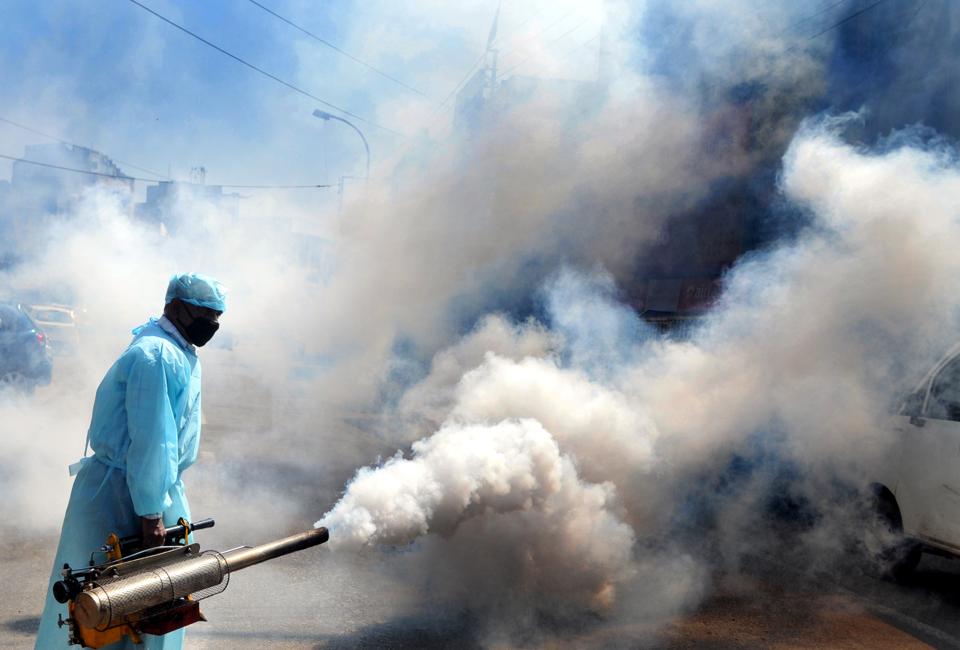prasad1
Active member
An invisible threat has exposed the frailty of human beings, by cutting across boundaries and claiming lives over the past four months. Ever since a 55-year-old in Hubei province in China first contracted the coronavirus disease (Covid-19) on November 17, 2019, as reported by the South Morning China Post, the world has been struggling to come to terms with it. It is still uncertain when the virus can be vanquished. Are we drawing the right lessons from the ongoing battle?
As we complete two weeks of the nationwide lockdown in force since March 25, let us look at our efforts to fight the virus. The lockdown has been an unprecedented decision in view of the scale and magnitude of its implications on the ground. The leadership rose to the occasion, given the gravity of the situation and limited options. Our federal spirit has seen Prime Minister Narendra Modi and all chief ministers on the same page in this hour of crisis. The political unanimity is heartening. This is a positive takeaway from the crisis.
With 1.3 billion people, India’s success in fighting the virus is critical to the success of the global fight. We have acquitted ourselves creditably so far. The scale of the spread of the virus and the rate of mortality have been kept low until now, preventing community spread of the virus. But the Tablighi Jamaat episode shows that there is no room for complacency. This episode should only be seen as an eye-opener to others and not beyond.
With social security networks in place, the rapid response of the central and state governments along with other initiatives has reduced the suffering of those living on the margins. People have understood the gravity of the situation and cooperated with the government, thanks to successful communication efforts. This unity of purpose and action needs to be sustained until the battle is won.
The pandemic has tested the capacities of the world’s mighty nations, which are still struggling to come to terms with the challenge. This raises the issues of deficiencies in institutions, infrastructure, individuals and international cooperation. These must be rectified before the next challenge. The future emergence and behaviour of such invisible organisms cannot always be anticipated, but we can put in place systems to minimise the damage. This means that the right lessons must be drawn from the current challenge for effective local and global action.
Doctors, paramedics, sanitation workers, the police, the media and governments are doing their best in this hour of crisis. Most important, people are cooperating in this collective effort. Let us stay focused. I am certain that Covid-19 will be overcome. But we need to be better prepared for the next challenge by drawing the right lessons from the current one.

 www.hindustantimes.com
www.hindustantimes.com
As we complete two weeks of the nationwide lockdown in force since March 25, let us look at our efforts to fight the virus. The lockdown has been an unprecedented decision in view of the scale and magnitude of its implications on the ground. The leadership rose to the occasion, given the gravity of the situation and limited options. Our federal spirit has seen Prime Minister Narendra Modi and all chief ministers on the same page in this hour of crisis. The political unanimity is heartening. This is a positive takeaway from the crisis.
With 1.3 billion people, India’s success in fighting the virus is critical to the success of the global fight. We have acquitted ourselves creditably so far. The scale of the spread of the virus and the rate of mortality have been kept low until now, preventing community spread of the virus. But the Tablighi Jamaat episode shows that there is no room for complacency. This episode should only be seen as an eye-opener to others and not beyond.
With social security networks in place, the rapid response of the central and state governments along with other initiatives has reduced the suffering of those living on the margins. People have understood the gravity of the situation and cooperated with the government, thanks to successful communication efforts. This unity of purpose and action needs to be sustained until the battle is won.
The pandemic has tested the capacities of the world’s mighty nations, which are still struggling to come to terms with the challenge. This raises the issues of deficiencies in institutions, infrastructure, individuals and international cooperation. These must be rectified before the next challenge. The future emergence and behaviour of such invisible organisms cannot always be anticipated, but we can put in place systems to minimise the damage. This means that the right lessons must be drawn from the current challenge for effective local and global action.
Doctors, paramedics, sanitation workers, the police, the media and governments are doing their best in this hour of crisis. Most important, people are cooperating in this collective effort. Let us stay focused. I am certain that Covid-19 will be overcome. But we need to be better prepared for the next challenge by drawing the right lessons from the current one.

Covid-19: Draw lessons for the future, writes M Venkaiah Naidu
In India, the political unanimity in dealing with it is heartening. Citizens have also cooperated
